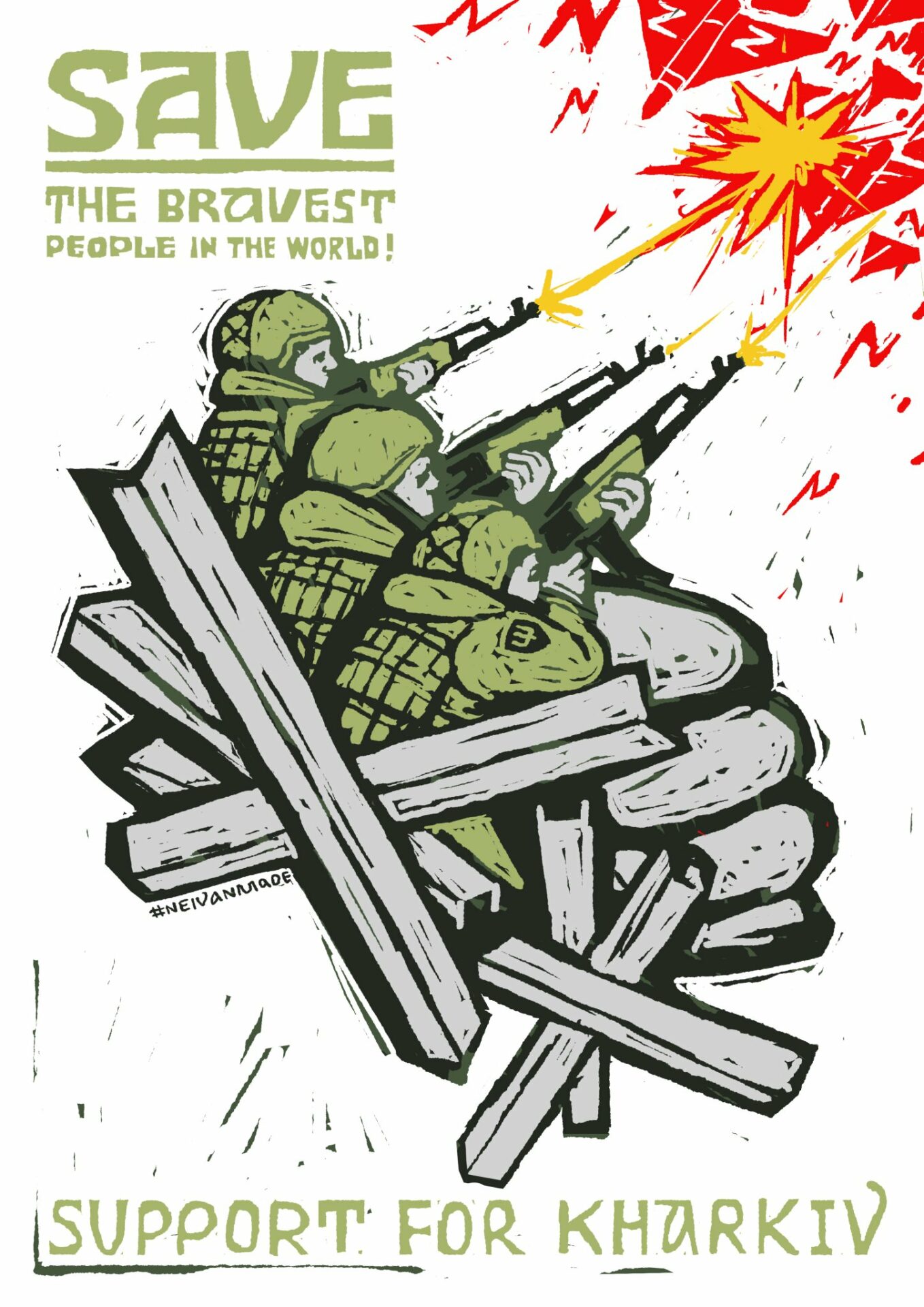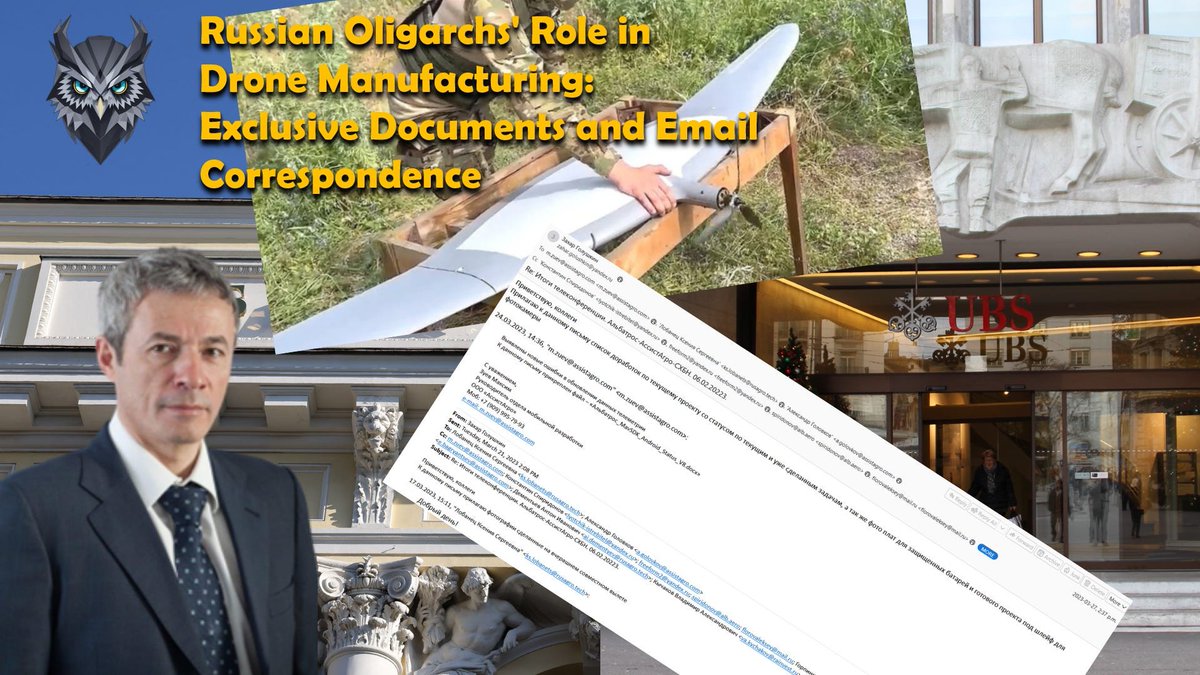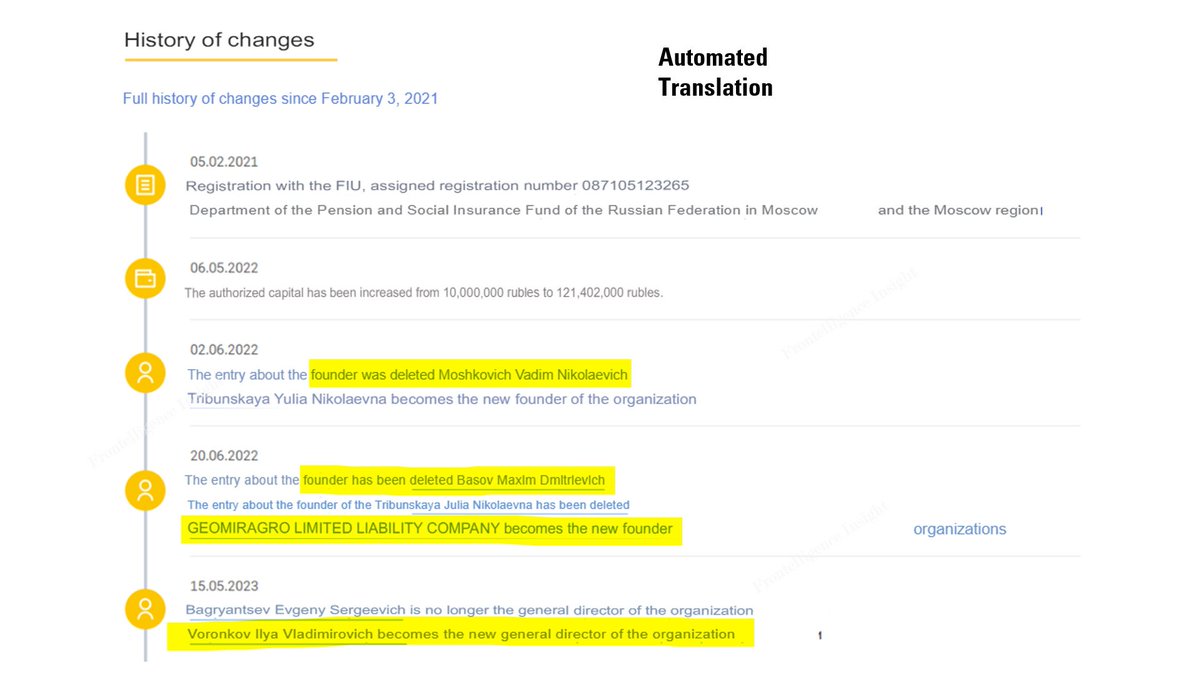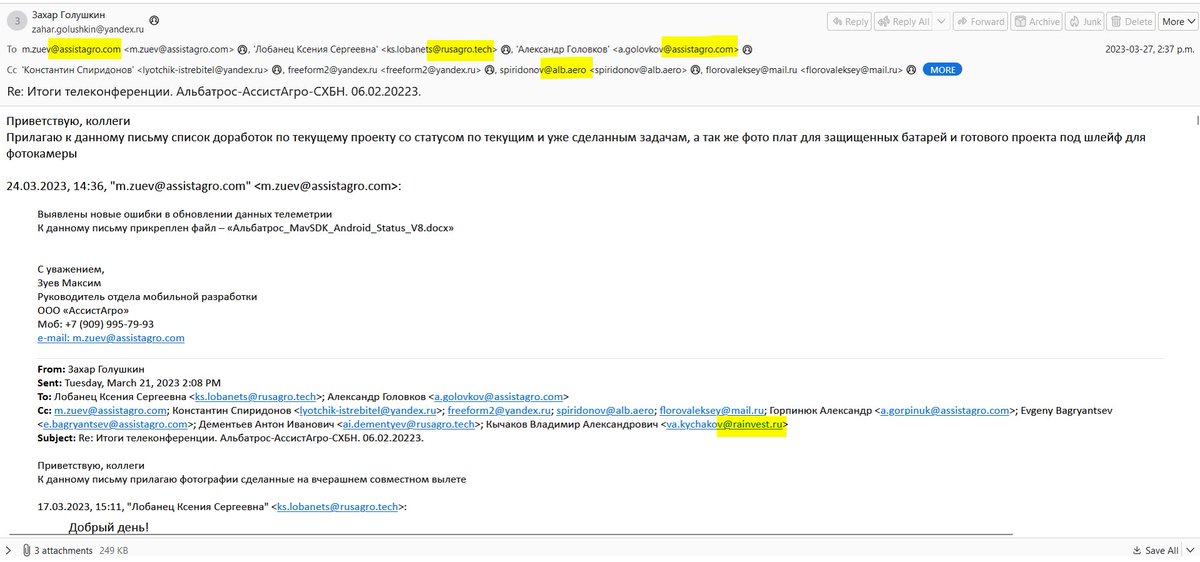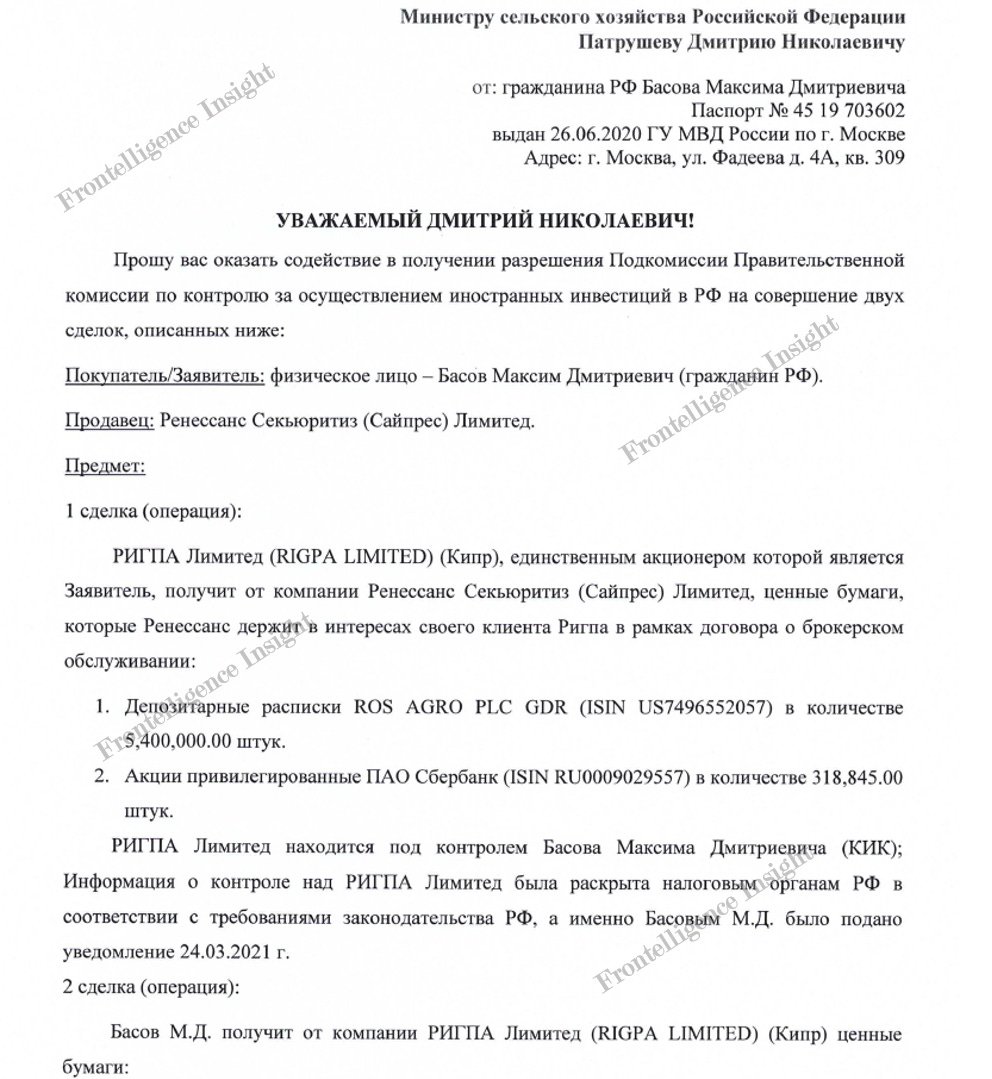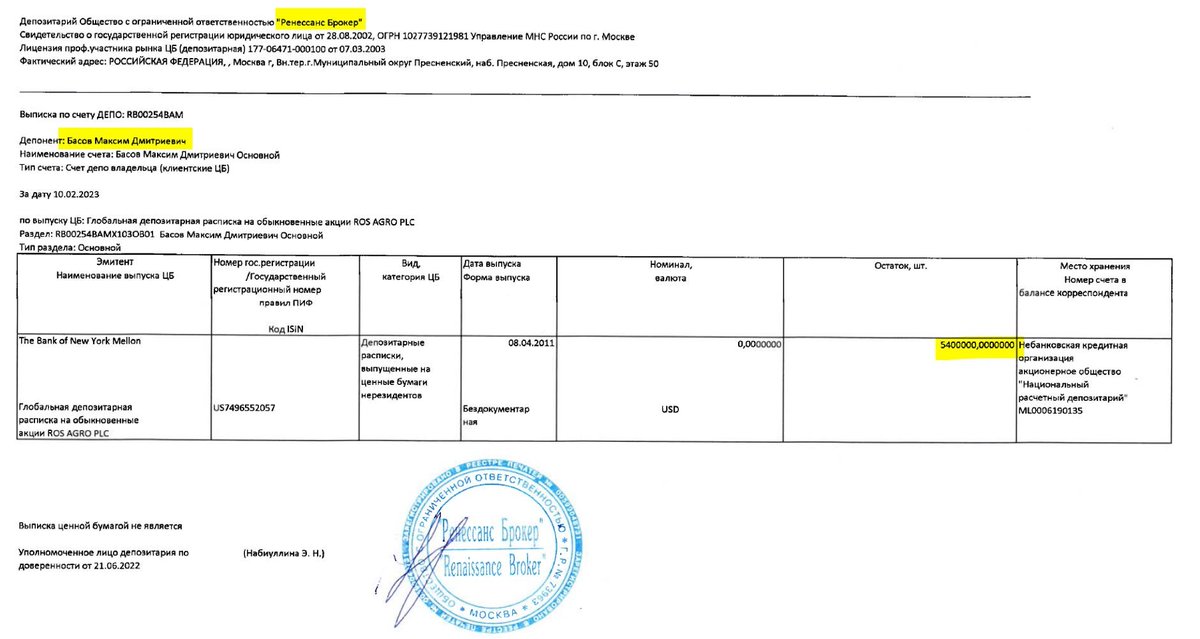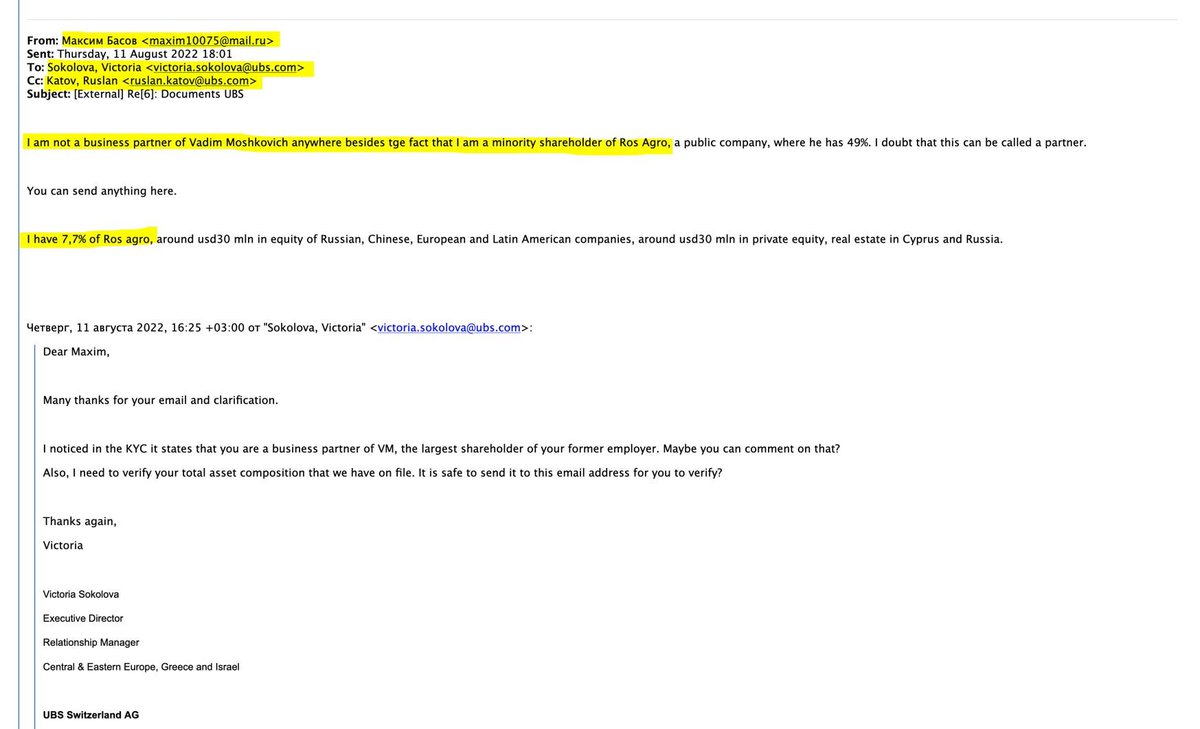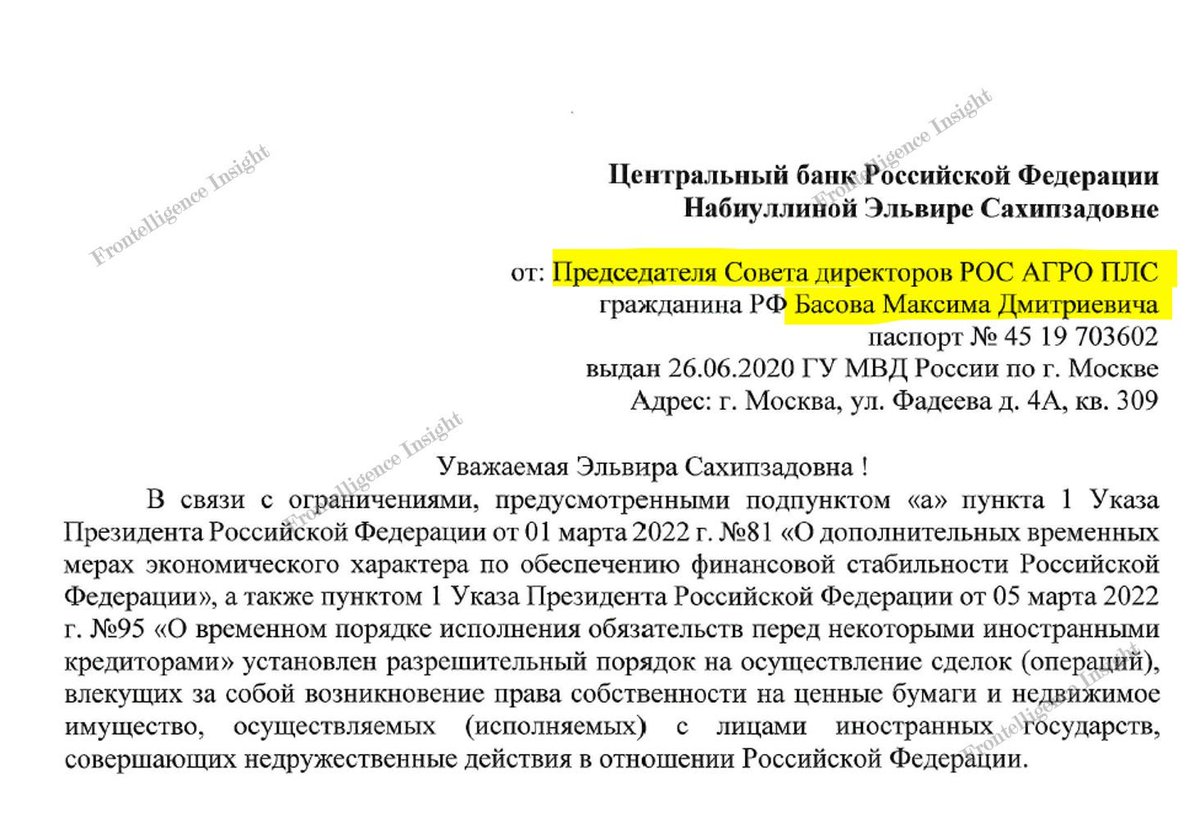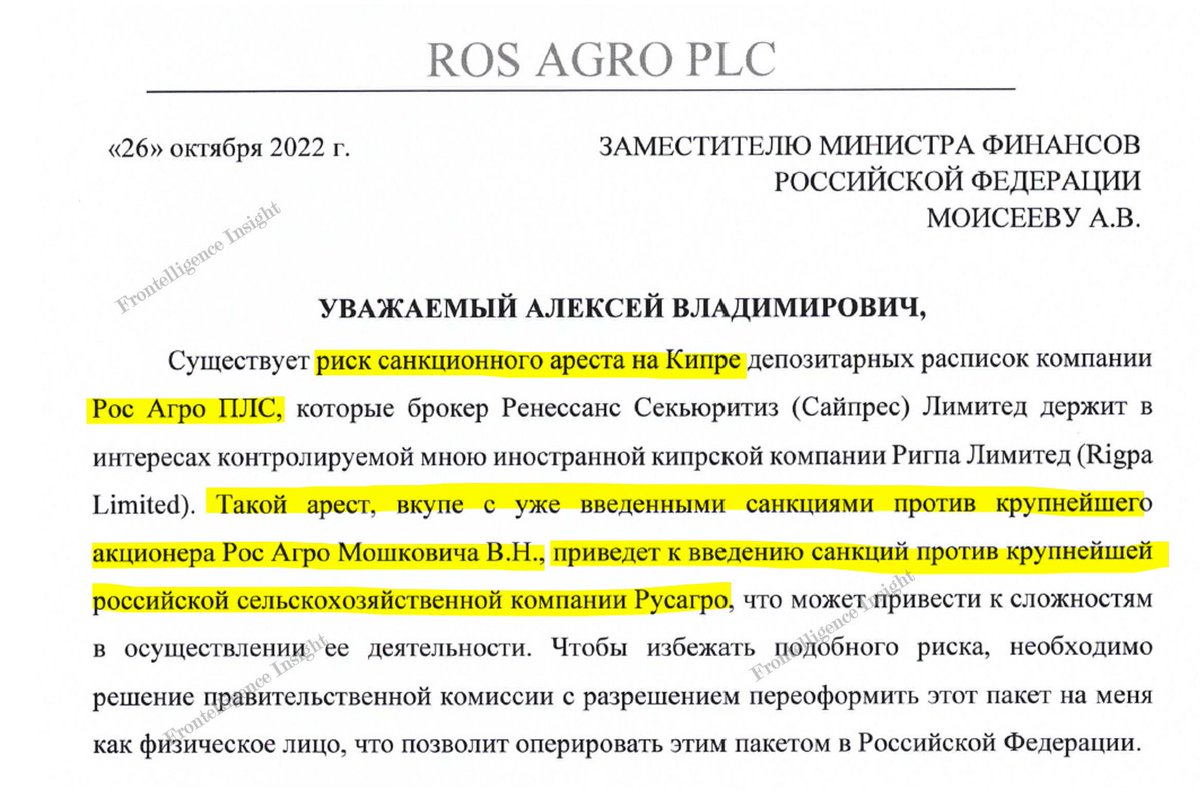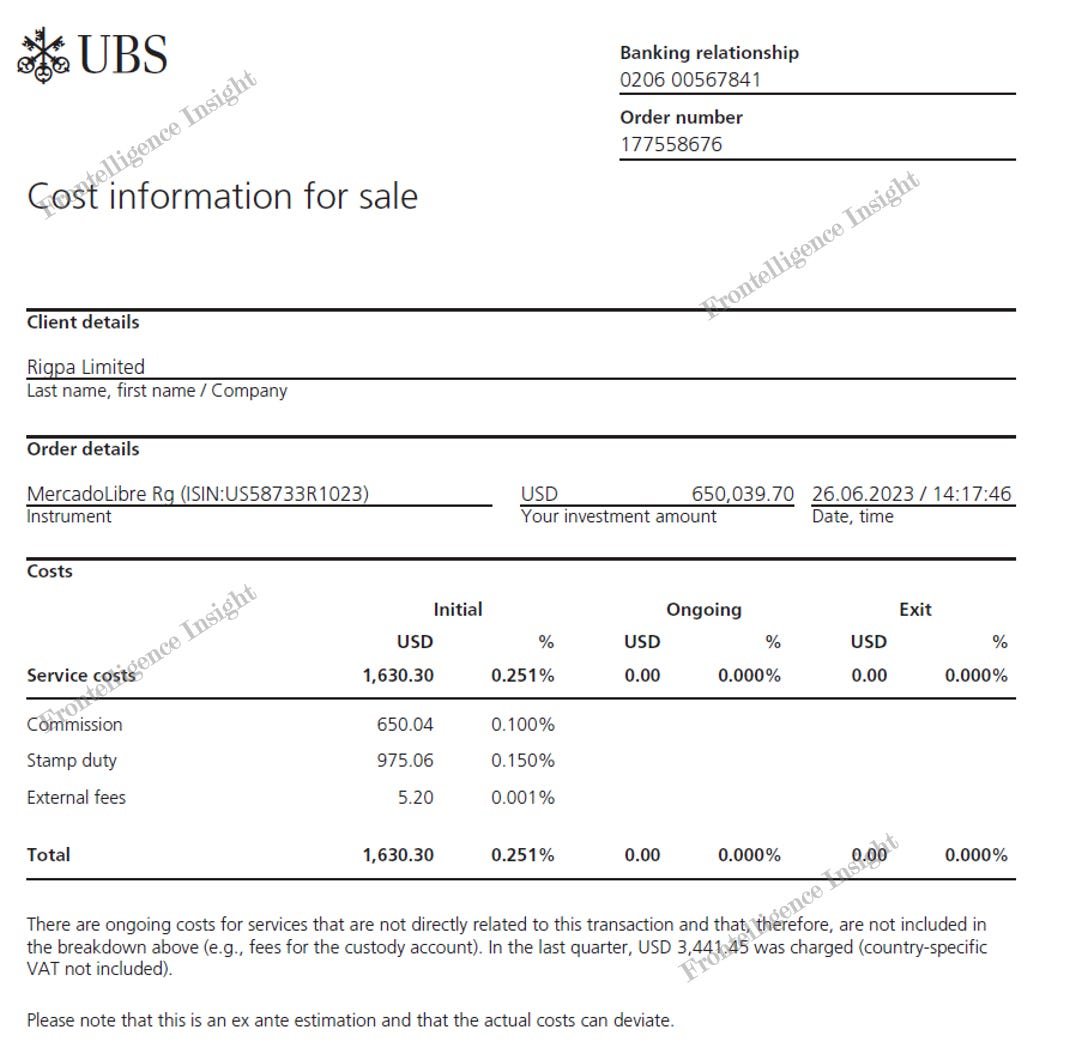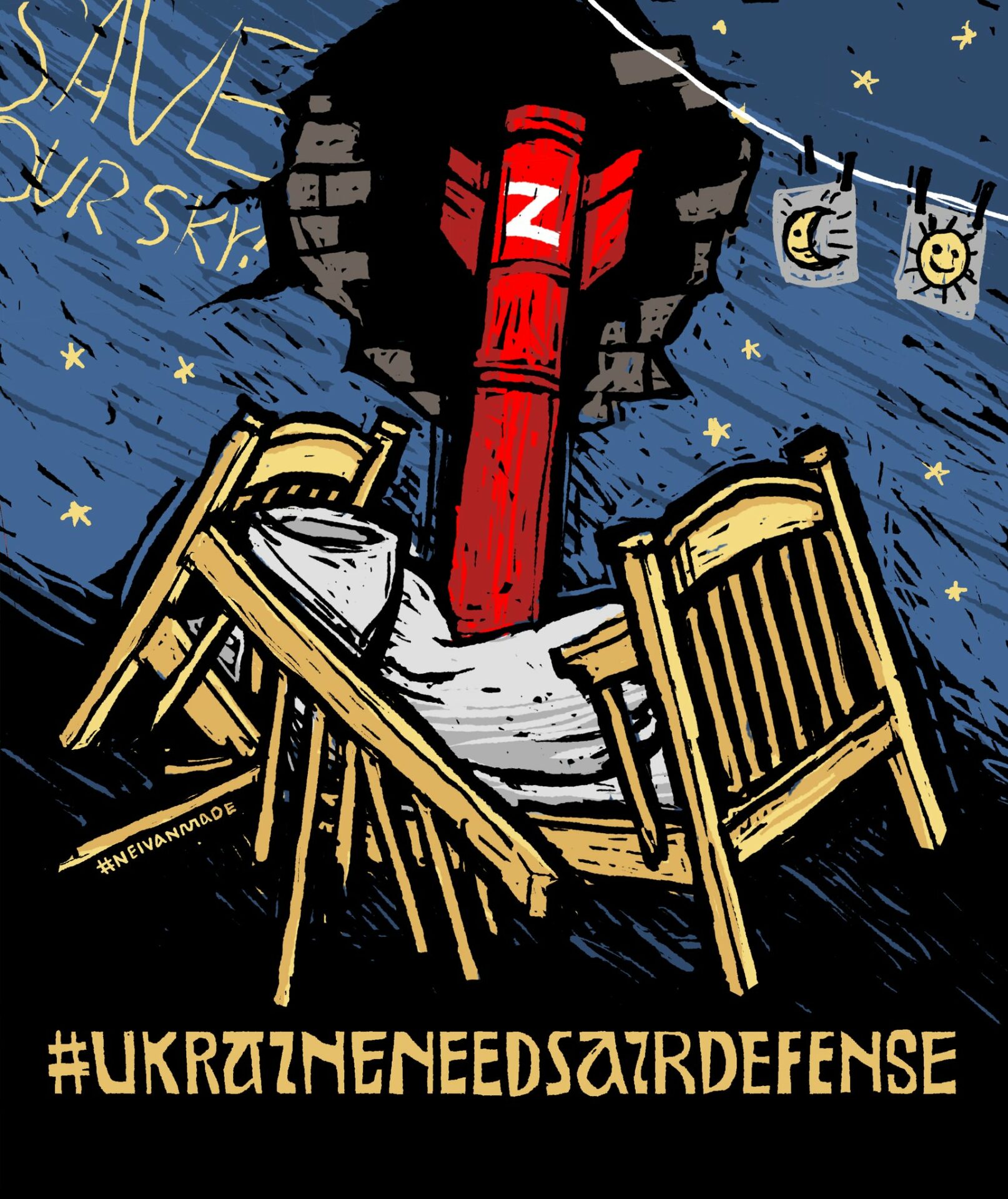
(Image by NEIVANMADE)
A quick housekeeping note: DO NOT engage with the trolls. That is all.
Russia has spent the last several hours bombarding Ukraine. This was the second bombardment of the day.
Ballistic missiles launched from Belgorod hit Kharkiv. At least two loud explosions heard.
Russia's unleashing a mixed attack, utilizing various missiles, seizing a moment when Ukraine's air defense is lacking. pic.twitter.com/C47Ju3JNgQ— Maria Avdeeva (@maria_avdv) April 26, 2024
Little Nadia protects her cat named Kasper during air raid alerts.
No kid should live through such things. We need weapons to protect their childhoods. https://t.co/Ul4R1mR8RA pic.twitter.com/RA7g0A9DUJ
— Anton Gerashchenko (@Gerashchenko_en) April 26, 2024
Here is President Zelenskyy’s address to the Ukraine Defense Contact Group at Ramstein Air Base from earlier today. Video below, English transcript after the jump.
War for Ukraine Day 794: Russia Has Just Bombarded Ukraine AgainPost + Comments (42)
Our Warriors Know How to Win, But They Need Your Sufficient and Timely Support – Address of the President to the Participants of the Ramstein Format Meeting
26 April 2024 – 19:47
Secretary Austin,
I thank you for your leadership in this Ramstein format,
Distinguished ministers and generals,
General Brown,
Dear friends,
I am pleased to greet you and to say that Ramstein has indeed become a global event. If we in Ukraine had not received your help with weapons, and if your countries had shown indifference to the destiny of our people, the world would definitely be different. And it is worth reminding. Predatory regimes like Russia’s are rapidly increasing their appetite for aggression. When they succeed in one part of the world, it creates problems in many other places – aggression spreads when not stopped. If our solidarity with you had not worked out and if your reaction to the war had remained only in words, the world would have had to deal with a much more powerful Russia. Many people worldwide would still believe that Russian missiles cannot be shot down. Many people would still be convinced that the Russian army is capable of crushing anyone’s independence. Many would grovel in front of Putin and not even try to defend their sovereignty if it were not for this example of ours – an example of courage that works and that must work completely.
Dear friends!
Please do not forget what you are deciding. This is not just about the arms supply – you are deciding the fate of the world that will either live by rules that we all recognize or depend only on the mercy of those whose violence is brutal.
At what point is the war now, after two years of Ramstein? The answer is clear: everything still depends only on our interaction – on how quickly we act and whether our agreements are fully implemented. Although in half a year, while we were waiting for a decision on the American support, the Russian army managed to seize the initiative on the battlefield, we can still now not only stabilize the front, but also move forward, achieving our Ukrainian goals in the war. Each of you understands what will be most effective.
First: long range weapons. No part of the occupied territory of Ukraine should remain safe for the occupier. And I thank every leader whose solutions are already working hard on the front lines – Storm Shadow, SCALPs and ATACMS. The range should be sufficient. Second: air shield. This year, Russian jets have already used more than nine thousand guided aerial bombs against Ukraine. And we need the ability to shoot down their combat aircraft so that they do not approach our positions and borders. It is possible. It is just as possible as giving protection to the cities of Ukraine from Russian rockets. We urgently need Patriot systems and missiles for them. This is what can and should save lives right now. At least seven Patriots are necessary for our cities to be safe. You have these systems, and they truly can change the situation now – change it for the better. As well as accelerating the transition to F-16. Our counter-terrorism cooperation must be more effective than Russia’s cooperation with the regimes in Iran and North Korea. Third: artillery. Many of those present at “Ramstein” were soldiers, and you can imagine what our soldiers feel when they simply have nothing to respond to enemy fire. The one-to-ten ratio of artillery in our country to that of the Russian army inspires Putin to fight on. He believes that he will walk through the ruins and he will try to launch his counteroffensive. We must disrupt it. Our soldiers need artillery – enough 155 calibers to stop Russian assaults and conduct our own active operations. I thank every country that really effectively helps with this.
And one more. Please pay maximum attention to the production of weapons – both in your countries and in our joint projects with you and in Ukraine. Now in Ukraine, we have the potential for the production of drones in particular, which significantly exceeds our financial capabilities. Same with electronic warfare systems. Likewise in many areas in your countries. We need to fill our defense capacities with real orders. And we are currently forming new brigades to strengthen our positions. They need support just like the brigades already operating at the front. Our team participating in “Ramstein” will present all the details. Even the best soldiers cannot change the war without a sufficient number of weapons. And I am proud of Ukrainian soldiers. Each of you knows the strength and capabilities of our soldiers. They know how to win. They must win. But Ukrainian defenders need your sufficient and timely support – exactly what you would need to win if you were soldiers in this war.
Thank you for your attention!
I am grateful for your support! And I would especially like to thank the US Secretary of Defense Lloyd Austin. We appreciate that it was on your personal initiative that exactly two years ago, the Contact Group on Defense of Ukraine, anti-war coalition, was created, which united efforts and rallied more than 50 countries of the world. Ukraine is grateful to you for your dedication, for the tireless work of your team and all of the partners for the saved lives of our citizens. Thank you!
Слава Україні!
Canada!
Canada is donating $3 million to Ukraine for the production of drones and $13 million to Czech ammunition initiative.
We are grateful to our Canadian friends for their staunch support!
Together, we will win!
🇺🇦🤝🇨🇦 https://t.co/2LhSpuCGee— Defense of Ukraine (@DefenceU) April 26, 2024
From the government of Canada:
News release
April 26, 2024 – Toronto, Ontario – National Defence / Canadian Armed Forces
Today, the Honourable Bill Blair, Minister of National Defence, participated in the 21st Ukraine Defense Contact Group (UDCG) meeting, hosted by United States Secretary of Defense Lloyd J. Austin III. The meeting was held virtually on the two-year anniversary of the Ukraine Defense Contact Group and brought together representatives from more than 50 countries.
At today’s meeting, Minister Blair announced that Canada is donating $3 million to Ukraine for the production of drones by Ukraine’s domestic defence industry. This marks the first time that Canada is contributing directly to the production of military drones in Ukraine, and this donation will be made in collaboration with the United Kingdom.
Minister Blair also confirmed that Canada is providing an additional contribution of approximately $13 million to Czechia’s initiative to procure and deliver large-calibre ammunition for Ukraine. This contribution comes in addition to last month’s announcement of $40 million and brings Canada’s total contribution to the Czech initiative to over $53 million.
In addition, Minister Blair noted that Canada’s donation of drones from Teledyne FLIR in Waterloo, Ontario, announced in February 2024, will grow by an additional 100 drones – bringing our total contribution of SkyRanger drones to 900. Delivery of these drones will begin in May.
These donations are funded by the $500 million military assistance package that Prime Minister Trudeau announced in Kyiv on June 12, 2023.[DM1] [AV2]
Minister Blair also provided updates on the delivery of other donations:
- The first 10 of 50 Armoured Combat Support Vehicles that Canada will donate to Ukraine will be delivered to Europe this summer. Ukrainians will be trained on the vehicles in the summer, and the vehicles will move to Ukraine in the fall. These vehicles are built by Canadian workers at General Dynamics Land Systems – Canada in London, Ontario.
- The 10 Multirole Boats from Zodiac Hurricane Technologies committed in January are set to be delivered this July, including the provision of commercially contracted training for Ukrainian operators, as well as trailers and spare parts; and
- As announced earlier this year, Canada has been contributing to Ukraine’s F-16 fighter capability by providing training since February 2024. Canada is providing civilian instructors, planes, and support staff contracted from Montreal-based Top Aces Inc. to support pilot and maintenance personnel training[AV3] [SW4] for Ukraine’s incoming F-16 fleet, under the auspices of the Air Force Capability Coalition. In addition, Canada is providing language training to 14 Ukrainian air force members at the Canadian Forces language school in Saint-Jean-sur-Richelieu, Quebec.
Canada’s military assistance to Ukraine demonstrates our ongoing commitment to providing Ukrainians with the military aid that they need in their fight against Russia’s illegal and unjustifiable war. As indicated in the Agreement on security cooperation between Canada and Ukraine, Canada will continue to support Ukraine for the long-term.
Quotes
“Ukrainians have been relentless in their fight for freedom, democracy, and the rules-based international order that keeps us all safe. On the two-year anniversary of the Ukraine Defense Contact Group, Canada reaffirms that it will stand with Ukraine for as long as victory takes.”
– The Honourable Bill Blair, Minister of National Defence
The US:
🇺🇸🇺🇦 The US has announced a historic new security assistance package for Ukraine, which totals up to $6 billion.
We are grateful to our American friends for their steadfast support!
The new package (the largest so far) includes:
* Additional munitions for Patriot air defense… pic.twitter.com/YdxC1Eh5I9— Defense of Ukraine (@DefenceU) April 26, 2024
🇺🇸🇺🇦 The US has announced a historic new security assistance package for Ukraine, which totals up to $6 billion.
We are grateful to our American friends for their steadfast support!
The new package (the largest so far) includes:
* Additional munitions for Patriot air defense systems and NASAMS;
* Equipment to integrate Western air defense launchers, missiles, and radars with Ukraine’s air defense systems;
* Counter-UAS equipment and systems;
* Munitions for laser-guided rocket systems;
* Multi-mission radars;
* Counter-artillery radars;
* Additional ammunition for HIMARS;
* 155mm and 152mm artillery rounds;
* Precision aerial munitions;
* Switchblade and Puma UAS;
* Tactical vehicles to tow weapons and equipment;
* Demolition munitions;
* Components to support Ukrainian production of UAS and other capabilities;
* Small arms and additional small arms ammunition; and
* Ancillary items and support for training, maintenance, and sustainment activities.
@DeptofDefense @SecDef
Together, we are stronger!
Thank you @SecDef for your leadership.
🇺🇦🤝🇺🇸 https://t.co/O9Nd4yEyrq— Defense of Ukraine (@DefenceU) April 26, 2024
Norway:
We are grateful for your steadfast support in our fight for freedom.
Together, we will win!
🇺🇦🤝🇳🇴 https://t.co/5Uy4UxBXv4— Defense of Ukraine (@DefenceU) April 26, 2024
Denmark:
The Danish parliament agreed to add 4.4 billion Danish kroner ($633 million) in military support to our country.
With these additional funds, total financing for military support under the Danish Ukraine Fund in 2023-2028 will amount to 64.8 billion Danish kroner ($9.3 billion).… pic.twitter.com/sqemq953lL
— Defense of Ukraine (@DefenceU) April 26, 2024
The Danish parliament agreed to add 4.4 billion Danish kroner ($633 million) in military support to our country.
With these additional funds, total financing for military support under the Danish Ukraine Fund in 2023-2028 will amount to 64.8 billion Danish kroner ($9.3 billion).
This sends a strong message that the free world stands with Ukraine in its fight against russian aggression.
Thank you, Denmark!
🇺🇦🤝🇩🇰
Estonia:
We are grateful for your support!
Together, we are stronger.
🇺🇦🤝🇪🇪🤝🇩🇰 https://t.co/BXzD9f4b5J— Defense of Ukraine (@DefenceU) April 26, 2024
Britain:
We have summoned the Russian Ambassador to the UK to demand an explanation for allegations that the Russian Federation orchestrated an act of criminal activity on UK soil.
We are working closely with allies to expose and respond to such malign activity.https://t.co/1gcfryWMcb
— Foreign, Commonwealth & Development Office (@FCDOGovUK) April 26, 2024
Idiots: Two British men have been charged with helping Russian intelligence services after a suspected arson attack on a Ukraine-linked business in London https://t.co/fMLFIjzJGk
— Ziya Meral (@Ziya_Meral) April 26, 2024
From the BBC:
Two British men have been charged with helping Russian intelligence services after a suspected arson attack on a Ukraine-linked business in London.
Dylan Earl, 20, from Elmesthorpe in Leicestershire, and Jake Reeves, 22, from Croydon, were investigated following a fire at a warehouse in east London in March.
Three other suspects linked to the fire have been held on other charges.
The investigation is being led by Met Police counter-terror officers.
Mr Earl is accused of planning to target the business, as well as attempting to recruit individuals to materially assist a foreign intelligence service, undertaking fraudulent activity and arson.
Mr Reeves is accused of accepting money knowing that it was from a foreign intelligence service.
The prosecution case is that the intelligence service involved was the Wagner private military group led by Yevgeny Prigozhin before he died when his plane exploded last year.
The investigation is related to a large fire which broke out on an industrial estate on Staffa Road in Leyton in March, which the prosecution said was started using an accelerant such as petrol.
The charges do not specify who owns the businesses that were targeted, but Companies House records show they are two parcel delivery services: Oddisey and Meest UK.
They are owned by Mykhaylo Prykhodko, also known as Mikhail Boikov, and his wife Jelena Boikova, who both live in London.
Nick Price, head of the CPS Special Crime and Counter Terrorism Division, said of Mr Earl: “Included in the alleged activity was involvement in the planning of an arson attack on a Ukrainian-linked commercial property in March 2024.”
He said Mr Earl is “alleged to have engaged in conduct targeting businesses which were linked to Ukraine in order to benefit the Russian state”.
The Foreign Commonwealth and Development Office (FCDO) has summoned the Russian ambassador Andrey Kelin following the allegations.
An FCDO spokesperson said the UK remains “deeply concerned by allegations of Russian-orchestrated malign activity on UK soil”.
“We will continue to work with our allies to deter and defend against the full spectrum of threats that emanate from Russia,” they added.
Mr Earl and Mr Reeves are the first people to be charged under a new law designed to update and modernise the offences of espionage, sabotage and foreign interference.
At the time it was passed, the government said it was designed to strengthen the UK’s defences against hostile activity by states “targeting the UK’s democracy, economy, and values.”
The full charges Mr Earl faces are:
- Preparing an act that endangered the life of a person or created a serious risk to the safety of the public contrary to Section 18 of the National Security Act 2023
- Assisting a foreign intelligence service contrary to Section 3 of the National Security Act 2023
- Aggravated arson
The full charges Mr Reeves faces are:
- Obtaining a material benefit from a foreign intelligence service, contrary to section 17 of the National Security Act 2023
- Aggravated arson
Mr Earl appeared at Westminster Magistrates’ Court last week, but for legal reasons BBC News has not been able to report this until today.
The pair are accused of taking part in the plan along with three other men. The three others were arrested as part of the investigation but have not been charged under the national security law.
- Dmitrijus Paulauska, 22, was charged having information about terrorist acts, an offence under the Terrorism Act 2000
- Nii Mensah, 21, from Thornton Heath in South London, has been charged with aggravated arson
- Paul English, 60, from Roehampton in South West London, has been charged with aggravated arson
All five are due to appear at the Old Bailey on 10 May.
Kyiv:
Kids' hospital in Kyiv forced to evacuate because some bloodthirsty terrorists spread lies about soldiers hiding there. This is the sickening result of Russia's disinformation. pic.twitter.com/F55M6Ucw4E
— Maria Avdeeva (@maria_avdv) April 26, 2024
And yes, this is the Russians learning from Libs of TikTok.
Donetsk Oblast:
As expected, the Ukrainian posture in the Donetsk Oblast remained largely unchanged since February. Russians, on the other hand, added around 20 new units to the oblast. We expect this disparity to continue to grow over spring. https://t.co/mNyR4j3e8j pic.twitter.com/fedOO3kqnX
— Konrad Muzyka – Rochan Consulting (@konrad_muzyka) April 26, 2024
The Russian army is bigger than Ukraine’s, more powerful. It has also learned from mistakes in 2022, adapted, and is not to be underestimated, Ukrainian commanders admit. But some experts see Russia’s advantage narrowing.
Story w/ @maxseddon @JP_Rathbonehttps://t.co/nC3vapdpEq— Christopher Miller (@ChristopherJM) April 26, 2024
Details from The Financial Times:
Russia fired up to 60,000 shells a day before autumn 2022 — an amount that has dropped to about 10,000 a day and which includes supplies from North Korea and Iran. Those smaller rates of fire reflect how the intensity of battle is outstripping what Russia can replenish even at those higher production levels — and holding back a more significant push forward….
And as Russia keeps firing more shells, it wears down its artillery barrels faster than it can produce new ones — forcing it to replace them with Soviet-era barrels instead,
US aid does not address what Ukrainian and western officials say is Kyiv’s most glaring problem — an inability to match the enormous numbers of men Russia has called up to fight. Christopher Cavoli, Nato’s supreme allied commander for Europe, told lawmakers in a Senate armed services committee hearing in April that Russia is recruiting 30,000 soldiers per month, taking its frontline troops from 360,000 a year ago to 470,000.
315,000 Russian soldiers have been killed or wounded in the war, Cavoli said, adding pressure for the army to replenish its units. That mercantile approach allows Russia to draw enough recruits from people for whom fighting is financially attractive while avoiding mobilisation — a step that prompted hundreds of thousands of men to flee the country in autumn 2022. ‘The main approach now is ‘purchasing blood’ among the Russian lower classes,’ said Luzin, from the Center for European Policy Analysis.
A summer offensive, however, would require Putin to declare another round of mobilisation, said Massicot of the Carnegie Endowment for International Peace…
Even if Russia did draft more men, sheer numbers would not be sufficient to compensate for their lack of training, Luzin said. “We all talk about mobilisation but where are the commanders, sergeants and lieutenants, who would command the mobilised soldiers?”
More at the link.
The Avdiivka front:
Russian assault group on MT-LB hits an anti tank mine. Avdiivka front. https://t.co/2xzbRuSoZu pic.twitter.com/Ff8TG6CmIM
— Special Kherson Cat 🐈🇺🇦 (@bayraktar_1love) April 26, 2024
The shifting front line:
Russia transformed its border with Ukraine over the past two years with multiple lines of defenses.
Russian forces continue expanding fortifications along this border and within occupied Ukraine. This update adds newly mapped Russian positions found in satellite imagery. (1/5) pic.twitter.com/Iu5bhSuZYb
— Brady Africk (@bradyafr) April 26, 2024
Closer to the front line, Russian forces are adding to existing networks of defenses.
For example, fortifications near Novofedorivka (Zaporizhzhia oblast) were expanded over the past month. (3/5) pic.twitter.com/13sNMGg0Pb
— Brady Africk (@bradyafr) April 26, 2024
Check out the full interactive map and satellite imagery of Russia's defenses in and around Ukraine at the link below. (5/5) https://t.co/JGlYbCrrUE
— Brady Africk (@bradyafr) April 26, 2024
Moscow:
As said, video shows the arson of a Russian Ka-32 helicopter at one of the airfields near Moscow, tonight. https://t.co/plWjtfGQvh pic.twitter.com/PAHc3Z03PR
— Special Kherson Cat 🐈🇺🇦 (@bayraktar_1love) April 26, 2024
Before we end, last night Andrya touched off a lively conversation about Neville Chamberlain in the comments. I want to just clarify a few things about Chamberlain. Despite the popular historic reputation he has as the prime minister that appeased Hitler, that is really not an accurate historical perspective. Chamberlain, along with his senior military leaders and the senior ministers in his government handling what we would today think of as foreign, defense, and national security policy, all recognized what was going on in Germany. They knew that they would have to fight. They also knew they were incapable of doing so in the 1930s. What they needed was a strategy to create time for Britain in general and the British military in specific to be rebuilt after World War I. And that is the strategy they created and pursued.
Seventy-five years ago, on Sept. 30, 1938, British Prime Minister Neville Chamberlain signed the Munich Pact, handing portions of Czechoslovakia to Adolf Hitler’s Germany. Chamberlain returned to Britain to popular acclaim, declaring that he had secured “peace for our time.” Today the prime minister is generally portrayed as a foolish man who was wrong to try to “appease” Hitler—a cautionary tale for any leader silly enough to prefer negotiation to confrontation.
But among historians, that view changed in the late 1950s, when the British government began making Chamberlain-era records available to researchers. “The result of this was the discovery of all sorts of factors that narrowed the options of the British government in general and narrowed the options of Neville Chamberlain in particular,” explains David Dutton, a British historian who wrote a recent biography of the prime minister. “The evidence was so overwhelming,” he says, that many historians came to believe that Chamberlain “couldn’t do anything other than what he did” at Munich. Over time, Dutton says, “the weight of the historiography began to shift to a much more sympathetic appreciation” of Chamberlain.
First, a look at the military situation. Most historians agree that the British army was not ready for war with Germany in September 1938. If war had broken out over the Czechoslovak crisis, Britain would only have been able to send two divisions to the continent—and ill-equipped divisions, at that. Between 1919 and March 1932, Britain had based its military planning on a “10-year rule,” which assumed Britain would face no major war in the next decade. Rearmament only began in 1934—and only on a limited basis. The British army, as it existed in September 1938, was simply not intended for continental warfare. Nor was the rearmament of the Navy or the Royal Air Force complete. British naval rearmament had recommenced in 1936 as part of a five-year program. And although Hitler’s Luftwaffe had repeatedly doubled in size in the late 1930s, it wasn’t until April 1938 that the British government decided that its air force could purchase as many aircraft as could be produced.
All of this factored into what Chamberlain was hearing from his top military advisers. In March 1938 the British military chiefs of staff produced a report that concluded that Britain could not possibly stop Germany from taking Czechoslovakia. In general, British generals believed the military and the nation were not ready for war. On Sept. 20, 1938, then-Col.Hastings Ismay, secretary to the Committee of Imperial Defense, sent a note to Thomas Inskip, the minister for the coordination of defense, and Sir Horace Wilson, a civil servant. Time was on Britain’s side, Ismay argued, writing that delaying the outbreak of war would give the Royal Air Force time to acquire airplanes that could counter the Luftwaffe, which he considered the only chance for defeating Hitler. British strategists, including Ismay, believed their country could win a long war (so long as they had time to prepare for it). This was a common belief, and doubtless factored into Chamberlain’s calculations.
Historians disagree whether the British military’s position relative to Germany was objectively better in 1939 than it was in 1938. The British military systematically overestimated German strength and underestimated its own in the lead-up to the Czechoslovak crisis, then shifted to a more optimistic tone in the months between Munich and the outbreak of war. Whatever the situation on the ground, it’s clear that the British military’s confidence in its abilities was far higher in 1939 than it was during the Munich crisis, especially because of the development of radar and the deployment of new fighter planes. In 1939, the military believed it was ready. In 1938, it didn’t.
Chamberlain’s diplomatic options were narrow as well. In World War I, Britain’s declaration of war had automatically brought Canada, Australia, and New Zealand into the fight. But the constitutional status of those Commonwealth countries had changed in the interwar period. According to the British archives, it was far from clear that Chamberlain could count on the backing of these countries if war broke out with Germany over Czechoslovakia. “There was really a feeling that the odds were against the potential of Britain being able to prevail facing Germany and potentially Italy and Japan, and with very few potential allies,” Dutton says. Soviet Russia was seen as a potential enemy to be feared, not a potential ally. America’s neutrality laws made it unlikely that even a willing president could bring the United States into the fight. There is also plenty of evidence in the archives that the British government had near-total disdain for the stability and fighting abilities of France, its only likely major-power ally. The average duration of a Third Republic government in the 1930s was nine months. When war did break out, Chamberlain’s doubts about France’s staying power proved prescient.
Nor was the British public ready for war in September 1938. “It’s easy to forget that this is only 20 years after the end of the last war,” Dutton notes. British politicians knew that the electorate would never again willingly make sacrifices like the ones it had made in World War I. The Somme and Passchendaele had left scars that still stung, and few, if any, British leaders were prepared to ask their people to fight those battles again. Many people saw the work of the Luftwaffe in the Spanish Civil War and feared that aerial bombardment would ensure that a second war would be more devastating that the first. Any strategy that claimed to offer an alternative to sending large armies to Europe therefore found supporters on every level of British society. “There was a feeling that any sensible politician would explore every avenue to avoid war before accepting war was inevitable,” Dutton says.
If Britain were to go to war with Hitler’s Germany, most people didn’t want to do so over Czechoslovakia. “People spoke of Czechoslovakia as an artificial creation,” Dutton says. “The perception by the ’30s was there was a problem, it was soluble by negotiation, and we ought to try. It was not the sort of thing that would unite the country [as] an issue to go to war over.”
Nor is the modern view of Hitler reflective of how the Nazi dictator was seen in the late 1930s. Blitzkrieg and concentration camps were not yet part of the public imagination. The British had already been dealing with one fascist, Benito Mussolini, for years before Hitler took power, and top British diplomats and military thinkers saw Hitler the way they saw Mussolini—more bravado than substance. Moreover, many Europeans thought German complaints about the settlement of World War I were legitimate. We now see Hitler’s actions during the early and mid-1930s as part of an implacable march toward war. That was not the case at the time. German rearmament and the reoccupation of the Rhineland seemed inevitable, because keeping a big country like Germany disarmed for decades was unrealistic. Hitler’s merging of Austria and Germany seemed to be what many Austrians wanted. Even the demands for chunks of Czechoslovakia were seen, at the time, as not necessarily unreasonable—after all, many Germans lived in those areas.
So, when Chamberlain returned from Munich with the news that he had negotiated a peace agreement, cheering crowds filled the streets and the press rejoiced.
To Chamberlain’s credit, his views changed as Hitler’s intentions became clearer. When Hitler took Prague and the Czech heartland in March 1939—his first invasion of an area that was obviously without deep German roots—Chamberlain said he feared it might represent an “attempt to dominate the world by force.” He doubled the size of the Territorial Army (Britain’s version of the National Guard) and, on April 20, launched peacetime conscription for the first time in Britain’s history. Then, on Sept. 3, some 11 months after Munich, he took his country to war.
Historians often find themselves moving against popular opinion. In the case of Chamberlain, though, the gap between public perception and the historical record serves a political purpose. The story we’re told about Munich is one about the futility and foolishness of searching for peace. In American political debates, the words “appeasement” and “Munich” are used to bludgeon those who argue against war. But every war is not World War II, and every dictator is not Hitler. Should we really fault Chamberlain for postponing a potentially disastrous fight that his military advisers cautioned against, his allies weren’t ready for, and his people didn’t support? “People should try to put themselves into the position of the head of the British government in the 1930s,” Dutton says. “Would they have taken the apparently huge risk of a war [that] might mean Armageddon for a cause that nobody was really convinced in?” Chamberlain’s story is of a man who fought for peace as long as possible, and went to war only when it was the last available option. It’s not such a bad epitaph.
For a full and nuanced treatment of Chamberlain that takes full advantage of the archival material made available in the late 1950s, I recommend Dutton’s Neville Chamberlain.
That’s enough for tonight.
Your daily Patron!
There are no new Patron tweets or videos today. Here is some adjacent material:
Today's Ukrainian cat—handsome badass guarding his territory. pic.twitter.com/fXjnSdakFb
— Lorenzo The Cat (@LorenzoTheCat) April 26, 2024
Even with wounded hands, a Ukrainian soldier has compassion for his country's vulnerable creatures. Photo: Nathalie Vlasenko. pic.twitter.com/qnmKNeOl9J
— Lorenzo The Cat (@LorenzoTheCat) April 25, 2024
Look at this gorgeous hunk. His name is Dexter and he's at the @catsonmars_ua shelter in Kyiv with Uncle Eugene @eugenehmg just waiting to be adopted. pic.twitter.com/9hpPFTidaB
— Lorenzo The Cat (@LorenzoTheCat) April 23, 2024
Instead of a thousand words.
Glory to Ukrainian Defenders! pic.twitter.com/CkGYatcWF7
— Anton Gerashchenko (@Gerashchenko_en) April 23, 2024
Open thread!



